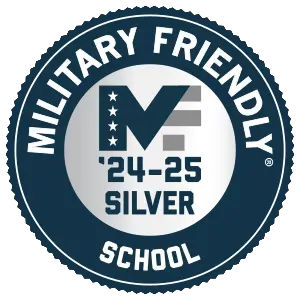Exploring Ohio Business College’s Dynamic Business Administration Programs
 The world of business has many career possibilities for those who are willing to get the proper education. While there is a limited number of high-powered CEO positions available, those executives wouldn’t function without the help of their business administration specialists and assistants. Discover what a business administration specialist does and find out about the options available to fulfill one of these critical roles.
The world of business has many career possibilities for those who are willing to get the proper education. While there is a limited number of high-powered CEO positions available, those executives wouldn’t function without the help of their business administration specialists and assistants. Discover what a business administration specialist does and find out about the options available to fulfill one of these critical roles.
What Is a Business Administration Specialist
Business administration specialists and business administration assistants have similar job roles, with many tasks assisting key executives and department heads. The key difference is that specialists may take on special administration projects, such as planning events. You’ll find career opportunities in a wide range of industries, including healthcare, manufacturing, education, finance, civil service, nonprofit, and retail. To qualify for a job as a business administration specialist, you’ll want to consider either a 1-year diploma or a 2-year associate in business administration degree program.
Business Administration Diploma
The Business Administration diploma program prepares you to enter the field in as little as 1 year. The subjects you can expect to study include the following.
Accounting I
While a business administration specialist will not function as part of the accounting department directly, specialists do provide foundational support to their mission. This often involves dealing with expense reports, helping prepare and manage certain budgets, and financial forecasting to help guide business decisions.
Computerized Accounting
Financial data in the modern business setting is logged and controlled through various information systems. To function in the environment, you must not only know how to manipulate the system but also the risks associated with it and how to mitigate risk exposure. During this course, you’ll take a deep dive into various accounting information systems and how to use them to analyze financial and accounting data. You learn how to evaluate the design of accounting software, and then delve into the risks of computerized accounting and modern mitigation strategies.
Small Business Management
Operating a small business comes with its unique challenges. Whether you’re an entrepreneur learning how to better run your business or you’re working in a small business setting, this course will give you the foundation from which to work. During this class, you’ll cover topics such as strategic planning, understanding the business lifecycle, legal issues faced by small businesses, and optimizing small business marketing channels.
Business Communications
Proper business communications bring more intention to how you communicate with various stakeholders within your organization to achieve your desired outcome. In this course, you explore interpersonal communication, which is critical for getting buy-in and cooperation from various people within your organization. You also discover how to develop effective presentations and various forms of formal business communications.
Career Planning and Success
There is nothing more frustrating than investing your time in obtaining the qualifications for a particular career field, only to have no way of launching into it. With a course in career planning and success, you are equipped to go into the market, identify a job you’ll find satisfying, and have a plan for advancing your career. In this course, you explore topics like identifying personal and work values, skills assessment, career interests, your work and learning styles, and your personality type and how that influences your work environment and satisfaction.
Intro to Computer Science
Even if you are not interested in pursuing a career in computer science, having a basic understanding of the field is critical for your success in business administration. Everything a business in the modern marketplace is influenced and affected by technology or software. Therefore, having a basic understanding of the field helps you think through problems you may face. Topics you explore may include an overview of computer science, programming and thinking algorithmically. You also get an overview of the concepts that drive computer science, like abstraction, algorithms, data structures, encapsulation, and security. Plus, you begin gaining familiarity with modern programming languages.
Word Processing
As someone responsible for administrative functions, you encounter a near-daily need for advanced skills in word processing. This is not your basic typing course. Rather, you learn how to perform data merges, advanced formatting like inserting images and managing tables, and completing complex printing jobs.
Spreadsheets
Spreadsheets are the backbone of what makes businesses thrive, and your skill in leveraging them effectively can open doors on its own. You start with the basics of creating and formatting data tables. You learn how to use that data to create useful graphs. You also dive into advanced topics like pivot tables, formulas, and macros. When you are done, you have a keen understanding of not just a table, but how to effectively manage and evaluate data to assist with your role’s other functions or projects you’re assigned to collaborate on.
Graphics Presentations
It’s not enough to know how to add bullet points to a slide to develop an effective presentation. Rather, you must know how to match the content on the slide with the presentation without distracting from it. You also need to understand the nuance effect of the presentation’s graphic appearance and its impact on audience engagement and distraction. This class will cover the fundamentals of crafting an effective presentation for a business environment, including key tips for balancing the need for information with the risk of distraction.
Intro to College Math
Math is one of the key foundations for making strategic decisions in a business setting. You go beyond the basics of arithmetic into advanced mathematical concepts for analyzing data, forecasting, and problem solving. In this introductory course, you’ll gain experience using series and sequences and explore when and how to use conic, logarithmic, and exponential functions.
Externship
Most companies want employees with some experience. The challenge for you is gaining that experience in a real-world setting. As part of your program, you match up with one of the University’s partner companies. During your time together, you get basic training on the functions of a business administration specialist and get some experience you can add to your resume.
Associate’s Degree in Business Administration
When you get a full associate degree in business administration, you’ll cover everything in the diploma program, plus you’ll add the following areas of study.
General Accounting
Advancing to the associate degree means going further in your practice of accounting. Beyond the forecasting, budgeting, analysis, and your understanding of accounting systems, you also dive more deeply into business decision making, profit, and loss management, and explore the difference between financial and managerial accounting practices.
Payroll Accounting
Accounting is a wide-ranging field of study and has many aspects to explore that affect how businesses operate. Payroll is a critical function for all businesses, and some of it may fall onto the business administration specialist, especially in smaller companies. This is why payroll accounting is included as part of the associate degree program. In this course, you expand your accounting knowledge to include proper payroll record keeping, federal laws, gross wage and salary computation, payroll taxes, other payroll deductions, and completing required government forms and reports.
HR Management
An organization’s workforce creates the foundation of its ability to deliver on its vision and mission. This is why it is critical to understand how people work in an organizational setting and the strategies to truly bring out more as a team than the sum of the individual contributors. During this course, you explore topics such as human resource planning, policy development, human resource decision making, organizational strategies, and employee relations.
Law and Ethics
One of the realities of the modern business world is the standards through which a business must operate. The legal framework identifies where your business has potential legal liability when standards are not met. This could be a violation of ethical business practices or a failure to ensure safety in the product or service they offer. During this course, you explore methods of limiting your business’s legal liabilities, including limiting personal liability through the business’ structure. You also explore ethics that should influence your business operations.
Social Media and Internet Marketing
The world has changed and brought marketing capabilities to small businesses. When leveraged properly, the Internet and social media can reach everywhere from a local to a global audience, even if you are not a major influencer. You can leverage your marketing budget to target a specific audience so that every penny is spent on just those people who you need to expose to your brand, message, product, or service. In this class, you learn the fundamentals of social media, including risks and liabilities. You also learn the basics of available internet marketing channels, how to determine the right ones and methods of evaluating your marketing campaigns.
Principles of Management
As a business management specialist, you have an integral role in the day-to-day operation of your company or department. As such, it is important to have a good handle on management theory. During your Principles of Management course, you explore different schools of management and leadership theory, organizational change, and principles of leading organizations.
Customer Service and Relationship Management
A successful business provides exceptional customer service and maintains good client relationships. While you may feel like you intrinsically know how to provide good customer service, you must translate that into an ethos that permeates your department or organization. This course will cover the fundamentals of customer service, regardless of industry. You also explore the tenets of client relationships, how to maintain them, and how to recover when something doesn’t go according to plan.
Want to Learn More?
Take your place in the next generation of business leaders with the Business Administration program from Ohio Business College.
Contact us today to learn more about our Business Administration Degree and Diploma programs today.

